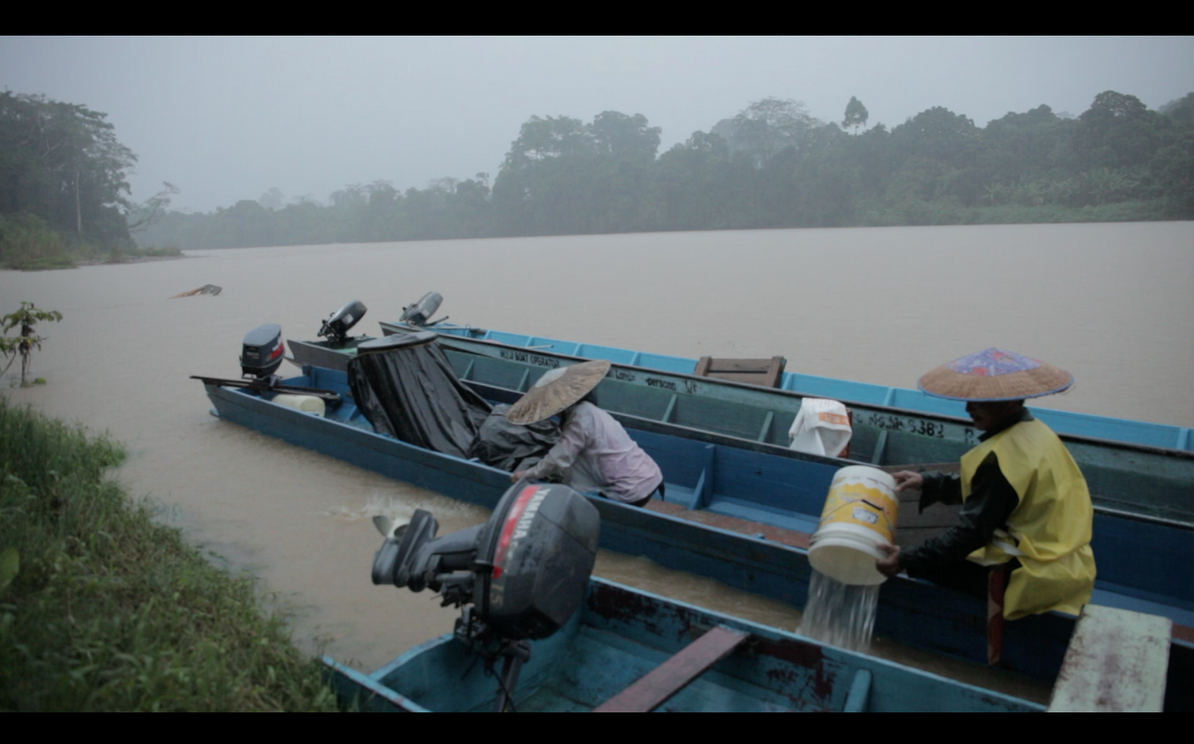SYNOPSIS
A Penan family and their adopted son made a movie about a virus that has spread across the globe, and their search for the medicinal plant to save humanity. In the post-logged forests of Sarawak, they try and sense-make the senseless, in their climate changed realities. A response.
LONG SYNOPSIS
MUTANG is a Penan man who has spent his life fighting for the protection of the forest. In a small village in the mountainous Lower Baram region of Sarawak (Malaysia) we are introduced to his world in the village. It's the wet season, with hot mornings spent in the rice fields, and the afternoons spent in the village with the sounds of pouring rain. But the peaceful life of the village in the forest has a dark side. The government is proposing to build a dam, there is fear of the Logging companies returning, and a neighbouring indigenous group has contested the ownership of the Penan land. But as the tension builds of the problems facing the Penan, the ‘life as normal’ continues. As we slowly realise that the issues facing these communities are not new ones. Slowly we are introduced to the other villagers, and we follow a series of small stories. The old people sing in the rice fields about the forest of the past before logging, whilst the young ones listen to an idealised time of a life in the forest that they never knew. We watch the young ones’ journeys from PETER hunting wild boar, YATAM’s motorbike adventures on the logging roads, to WELCEN who leaves to the city in search of work.
Suddenly we are ripped out of the world of the forest life, and are in Berlin - the reflexive city. We meet EPICURUS, a middle aged anthropologist who is researching the effects of Speculative Economics. He is teaching to students and walking through Potsdammer platz, when he receives a phone call that will change everything. The ‘voice of the computer’ tells him of a deadly outbreak that is quickly spreading across the globe and he’s asked to return to Sarawak and to Mutang to find the medicine that will save humanity. But it’s been twenty years since he’s been to Sarawak - paralysed by his ethical inability to continue the research of the community, he could never return. Epicurus contacts Mutang and the search begins. Mutang asks for help from other Penan villagers across Sarawak. Epicurus and his student search libraries and through old field notes, whilst Mutang and the others search the forest, caves and throughout the land. The calls from ‘the computer’ continue to raise a fear and panic for Epicurus talking of an impending end. But one by one, each of the Penan characters searching for the medicine, tell Mutang that they cannot find it. The panic heightens for Epicurus, but life keeps going as usual in the Penan villages, as they deal with the everyday hardships of looking for food and money to support themselves.
The apocalypse hits as a climax, with a loud thunder like gongs from the skies. And then it begins - fires across the bush, drought, ice caps snapping off, hurricanes and the rains. The world floods, whilst the sound of one young Penan Welcen, reads the story of Noah’s ark. The climax ends with a build of the end - feeling as if it’s the end of the world, and the end of the film. But the world does not end. We arrive in a water-world feeling on a boat. Collecting supplies, with the remnants of a great flood swamping the village. And slowly we see the remnants of the flood and the ones who survived. In the village it’s life as we saw it before. No change. Villagers harvesting the rice, women weaving, and the young ones playing games on their phone. The final scenes reiterate the notion of a world post-apocalypse, and seeing the issues of trying to survive. Mutang and his brother OSEN are more explicit in their questions - who will help? They bring their issues back to very small aspects, through song and direct conversation with ‘the real’ Epicurus (behind the camera), asking why do people come and make movies about us, but they don’t come and help us?
